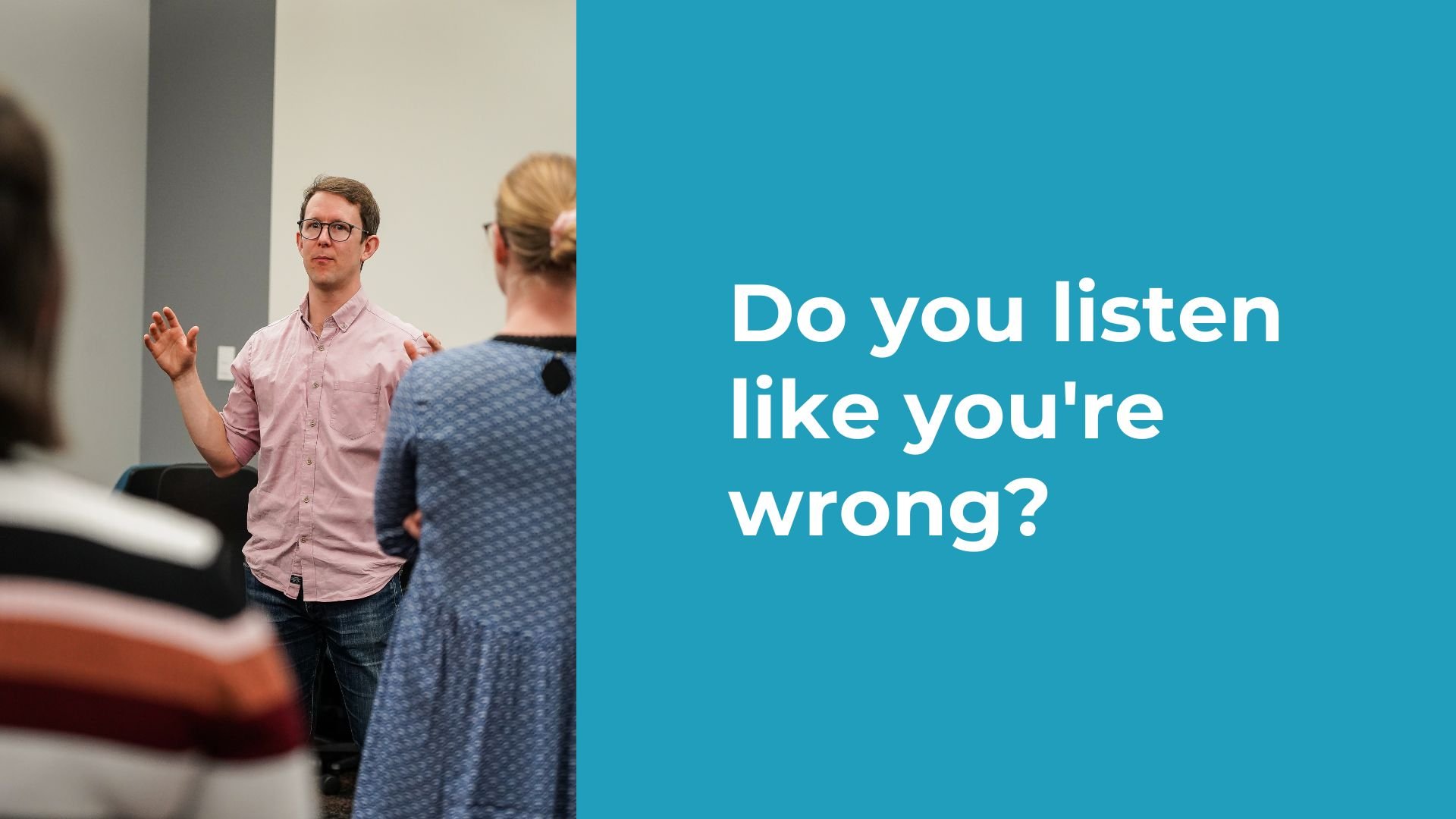Do you listen like you're wrong?

People who don't listen infuriate me
It's ironic because my family often tell me I'm a terrible listener. Paul, did that go in? Paul, are you with us? My poor listening comes from my busy brain. I'm often up in a bigger picture figuring something out. Or I might tune out because I (arrogantly) presume what the speaker is going to say.
But we're all bad listeners, some of the time. Stick yourself in front of your senior leadership team and you might be the most connected listener anybody has ever seen; you may even be picking up things that people haven't even said. Later, back at home, your partner tells you the plan the weekend and not a word sticks.
We all have different barriers to good listening
If you're not aware of your own listening blocks, I recommend Oscar Tromboli's Listening Villains quiz. He's created four villainous archetypes to explain why we all find listening hard. Your reason my be different to mine.
The four villains are:
- Dramatic - you get so into what they're saying that you steal the limelight
- Interrupting - you're simply waiting for your turn to speak
- Lost - you can't seem to grasp the thread of what the other person is saying
- Shrewd - you're three steps ahead having another conversation in your head.
(If you can't guess from my admissions above, my listening villain is quite clearly The Shrewd.)
Knowing what prevents you from listening is critical to achieving results in a group setting. But many of us never get taught to listen. Most communication courses focus on teaching us how to speak, how to influence, how to present.
Listen like you're wrong
I love the idea from Collier Brown that we should speak though we're right and listen as though you're wrong.
Observing this year's Waitangi Day made me think of that quote. Strategy expert Johny O'Donnell wrote an insightful post on LinkedIn. It was as though many of our political leaders are worried to listen or be influenced.
They are too concerned with speaking and listening as though they are right. This can lead us to become fragile dominators. A fragile dominator speaks loudly as if they are the sole arbiters of truth to hide the fragility and fear underneath.
In leadership we all have a role to heal past wrongs, as well as to invite people to create a new future. Listening must be a key part of your skillset. What would it take for you to speak as though you're right, and listen as though you're wrong?